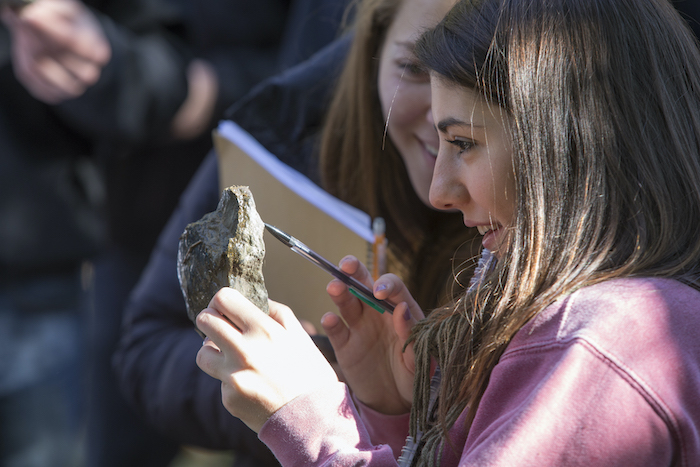B.S. Environmental Earth Science
What Can I Do With a Major in Environmental Earth Science?
Environmental earth scientists are typically employed in environmental consulting and planning firms, energy and mineral resource companies, or government agencies, such as the National Park Service, environmental protection agencies, and health departments. They are also employed in schools and universities, a wide array of both small and large corporations, legal practices, non-profit organizations, and even the news media. Because environmental earth scientists are continually urged to recognize and address the world around them, they acquire and hone skills that are highly valued in many disciplines.
About 50 percent of our graduates obtain immediate employment in earth science disciplines. A bachelor's degree can provide the background to obtain support or assistant positions as a geologist in government agencies or consulting companies as well as the laboratory or field programs of mining and petroleum corporations and state or national geological surveys.
In recent years, about 30 percent of our graduates have furthered their education in graduate programs. A master's degree, which is the terminal degree of most practicing earth, environmental, and geoscientists, provides a wide opportunity for professional achievement and advancement. A Ph.D. in Geology, Earth Science, or Environmental Science can lead to an academic career of teaching and research. Environmental Earth Science majors may continue in the sciences after obtaining their undergraduate degree, but they may also go into law, business, or education. Environmental law, environmental policy, and earth science education have become increasingly active areas in recent years, and the A.B. in Environmental Earth Science is an ideal path to these opportunities.
What Classes Would I Take?
The Bachelor of Arts (A.B.) degree in Environmental Earth Science is designed for those students who are interested in the geosciences and applying their geosciences pursuits to environmental issues, problems, and solutions. This degree offering reflects the fact that most of our faculty are involved in environmental research and study. The degree includes a core of introductory geosciences, environmental science, hydrogeology and geomorphology, or sedimentology/stratigraphy. Required electives include a wide array of our upper-level courses that address environmental themes, teach tools of environmental science, or are otherwise cross-disciplinary by nature. By petition, some elective requirements may be fulfilled by courses in other natural sciences or Geography. This degree also requires courses in mathematics/statistics, chemistry, physics, and the life sciences.